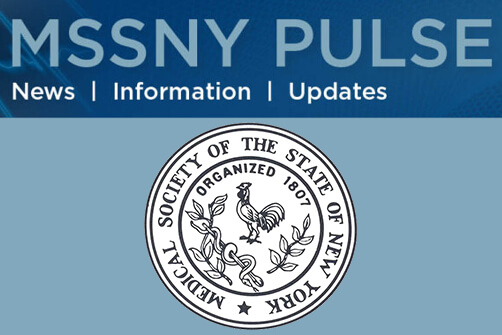COVID-19 Update for Ambulatory and Primary Care Settings COVID-19 variants and other respiratory viruses continue to circulate. The NYSDOH has stated that COVID-19 is a treatable disease, and primary and ambulatory care clinics should evaluate and manage patients in person, as clinically indicated, while following best practices for infection control. The NYSDOH has also encouraged […]
Clinical Intervention and Community Engagement for Climate Change On March 24, 12 PM- 2 PM the New York State Department of Health Commissioner’s Grand Round will convene subject-matter experts to discuss the clinical impacts of climate change. Clinicians might already be aware of the way severe weather, air pollution, and changes in water and food […]
Book Your 2023 House of Delegates Sponsorships Today! Calling all MSSNY members! MSSNY’s House of Delegates is a month away, but there is still time to book a sponsorship or a journal ad and be part of the festivities. Check out the brochure and pass the word to your colleagues about these fabulous sponsorship opportunities. […]
MSSNY Members Gather for Strategic Planning Meeting MSSNY members from varied constituencies spent two days last weekend working through a moderated strategic planning exercise. The meeting was a space for open communication at all levels, allowing everyone to participate and share their ideas. This was a high-level, long-term brainstorming and planning session that will direct […]
Four Key Steps to Advance Women Leaders in Medicine The intense focus on health inequities magnified by COVID-19 brought long-overdue attention to the needs of people from historically disenfranchised and diverse communities. Physicians must realize equity in healthcare with a parallel focus on diversity in the workforce, including leadership positions. There is a diversity gap […]
Hacking Healthcare: With 385M Patient Records Exposed, Cybersecurity Experts Sound Alarm on Breach Surge Hacking incidents, a type of breach, at healthcare firms have skyrocketed in the past five years as cybercriminals demand ransoms in exchange for restoring access to sensitive medical data. Federal records show that healthcare breaches have exposed 385 million patient records […]



